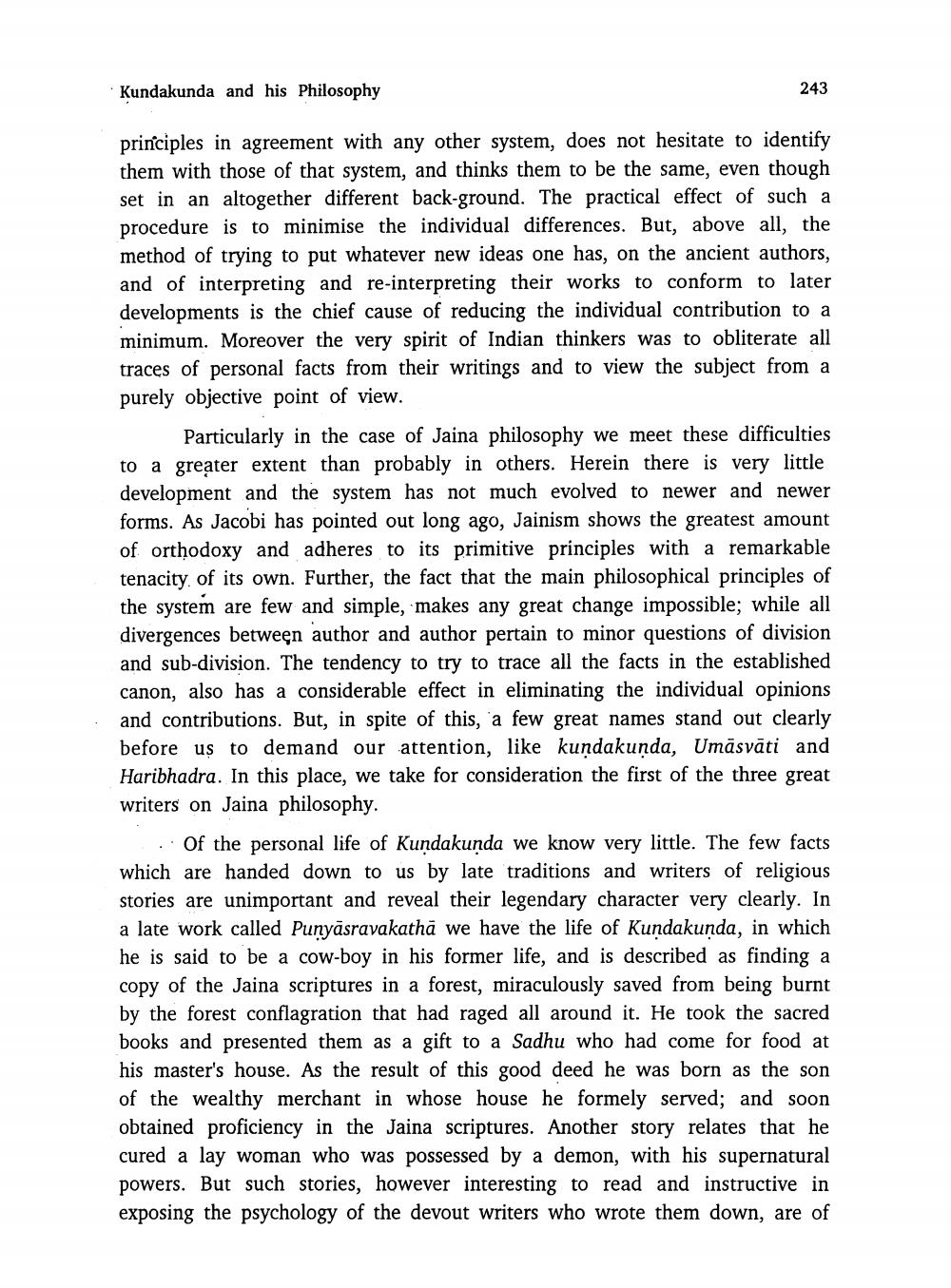________________
243
Kundakunda and his Philosophy
principles in agreement with any other system, does not hesitate to identify them with those of that system, and thinks them to be the same, even though set in an altogether different back-ground. The practical effect of such a procedure is to minimise the individual differences. But, above all, the method of trying to put whatever new ideas one has, on the ancient authors, and of interpreting and re-interpreting their works to conform to later developments is the chief cause of reducing the individual contribution to a minimum. Moreover the very spirit of Indian thinkers was to obliterate all traces of personal facts from their writings and to view the subject from at purely objective point of view.
Particularly in the case of Jaina philosophy we meet these difficulties to a greater extent than probably in others. Herein there is very little development and the system has not much evolved to newer and newer forms. As Jacobi has pointed out long ago, Jainism shows the greatest amount of orthodoxy and adheres to its primitive principles with a remarkable tenacity of its own. Further, the fact that the main philosophical principles of the system are few and simple, makes any great change impossible; while all divergences between author and author pertain to minor questions of division and sub-division. The tendency to try to trace all the facts in the established canon, also has a considerable effect in eliminating the individual opinions and contributions. But, in spite of this, a few great names stand out clearly before us to demand our attention, like kundakunda, Umäsvāti and Haribhadra. In this place, we take for consideration the first of the three great writers on Jaina philosophy.
Of the personal life of Kundakunda we know very little. The few facts which are handed down to us by late traditions and writers of religious stories are unimportant and reveal their legendary character very clearly. In a late work called Punyasravakatha we have the life of Kundakunda, in which he is said to be a cow-boy in his former life, and is described as finding a copy of the Jaina scriptures in a forest, miraculously saved from being burnt. by the forest conflagration that had raged all around it. He took the sacred books and presented them as a gift to a Sadhu who had come for food at his master's house. As the result of this good deed he was born as the son of the wealthy merchant in whose house he formely served; and soon obtained proficiency in the Jaina scriptures. Another story relates that he cured a lay woman who was possessed by a demon, with his supernatural powers. But such stories, however interesting to read and instructive in exposing the psychology of the devout writers who wrote them down, are of




